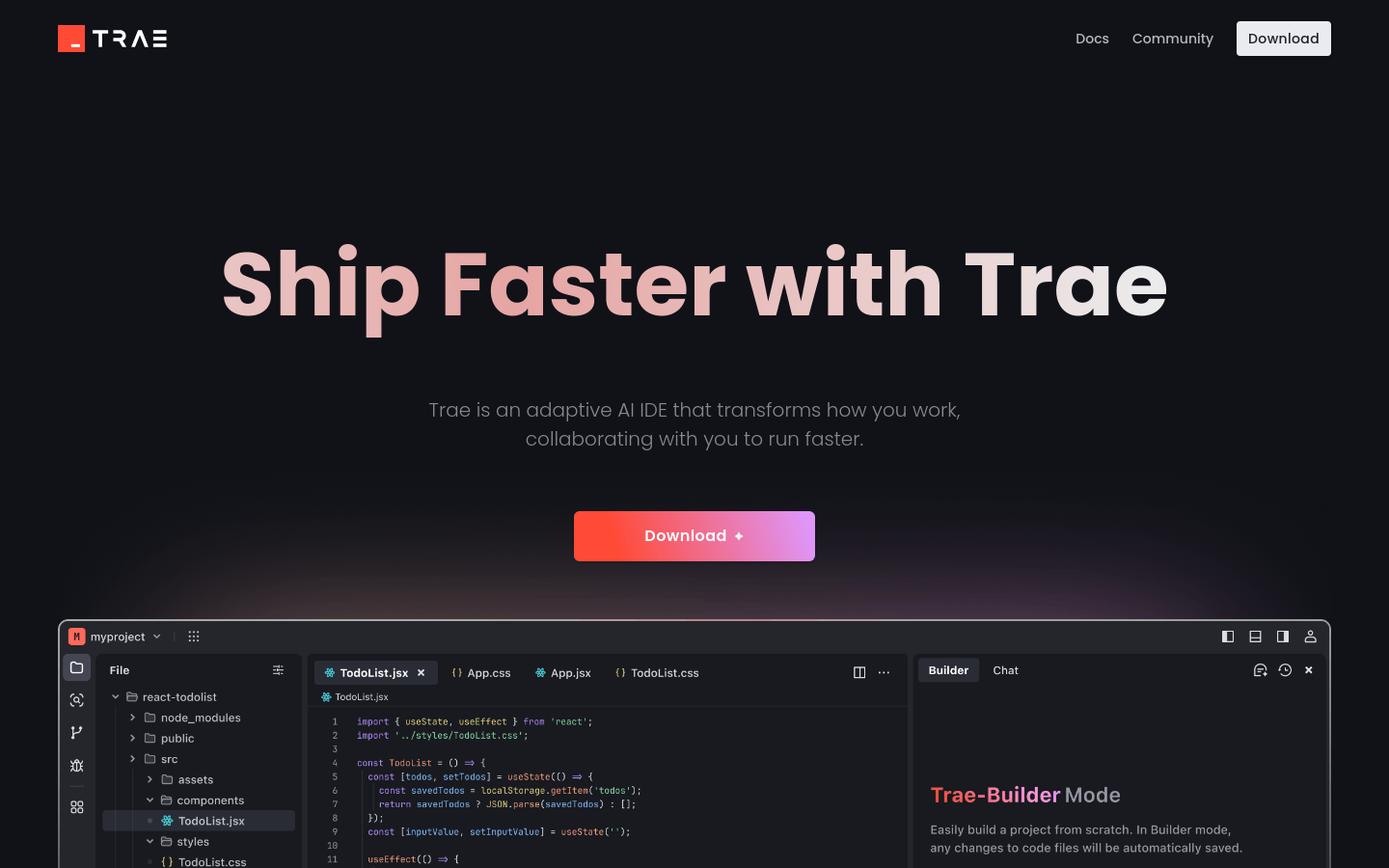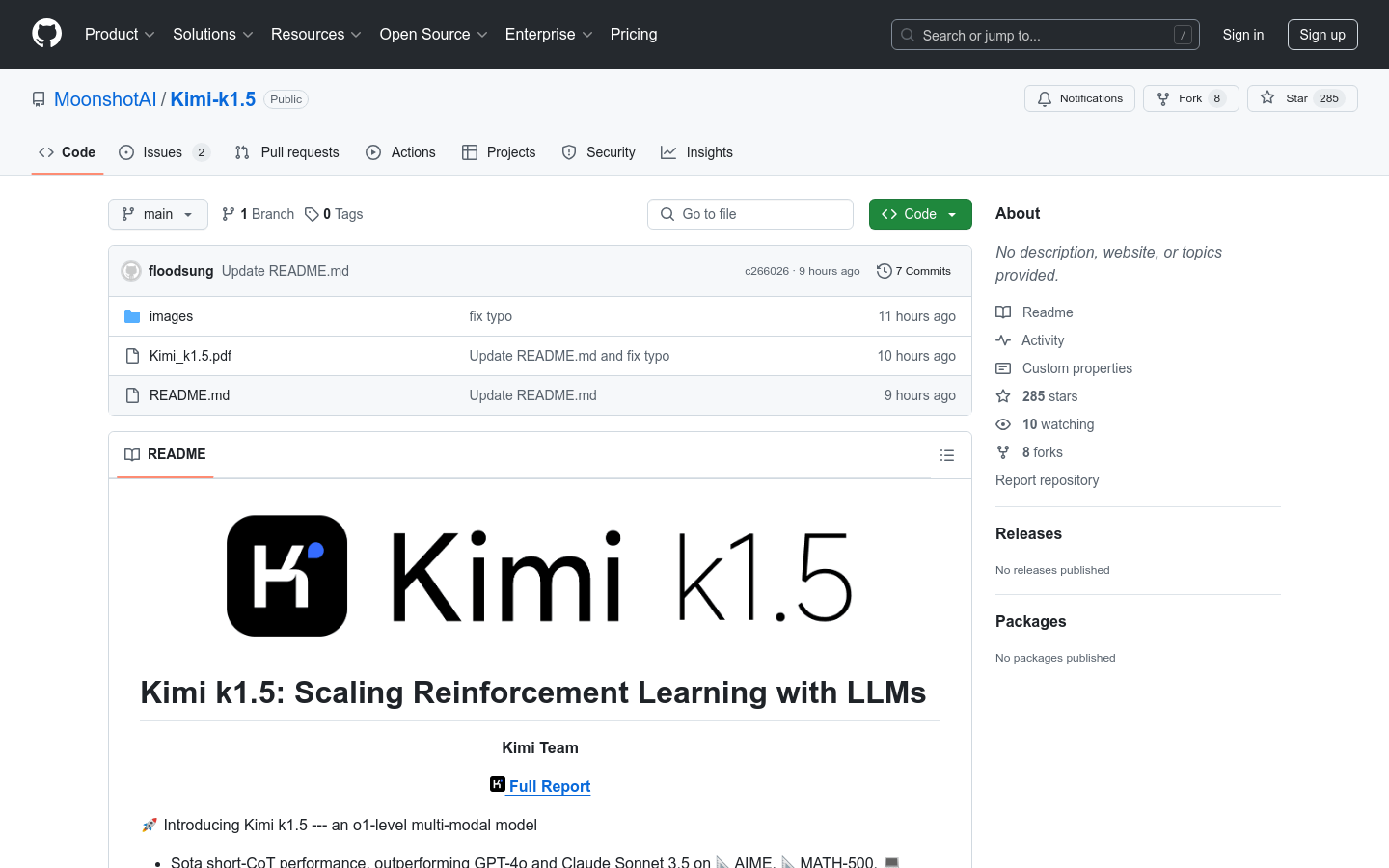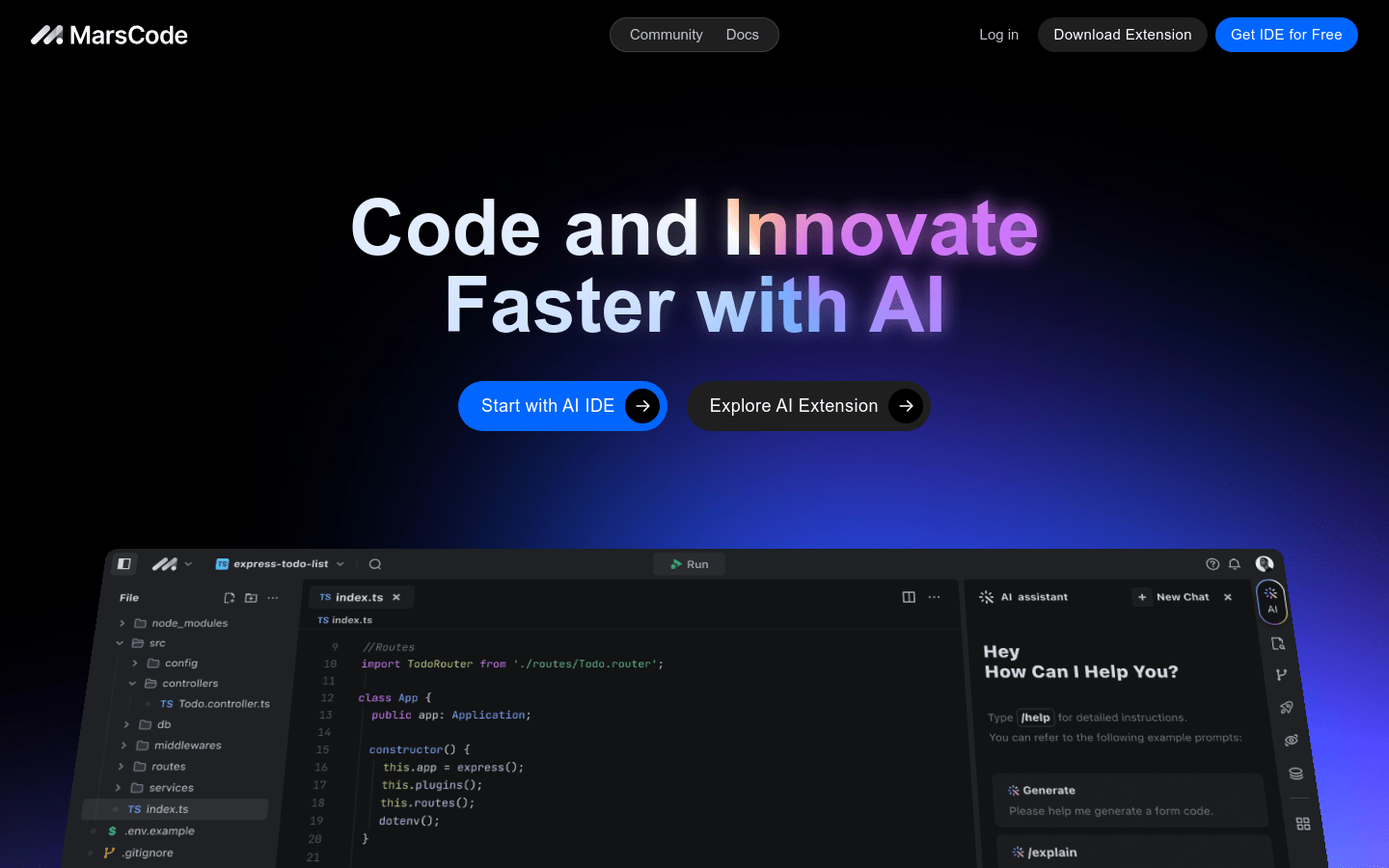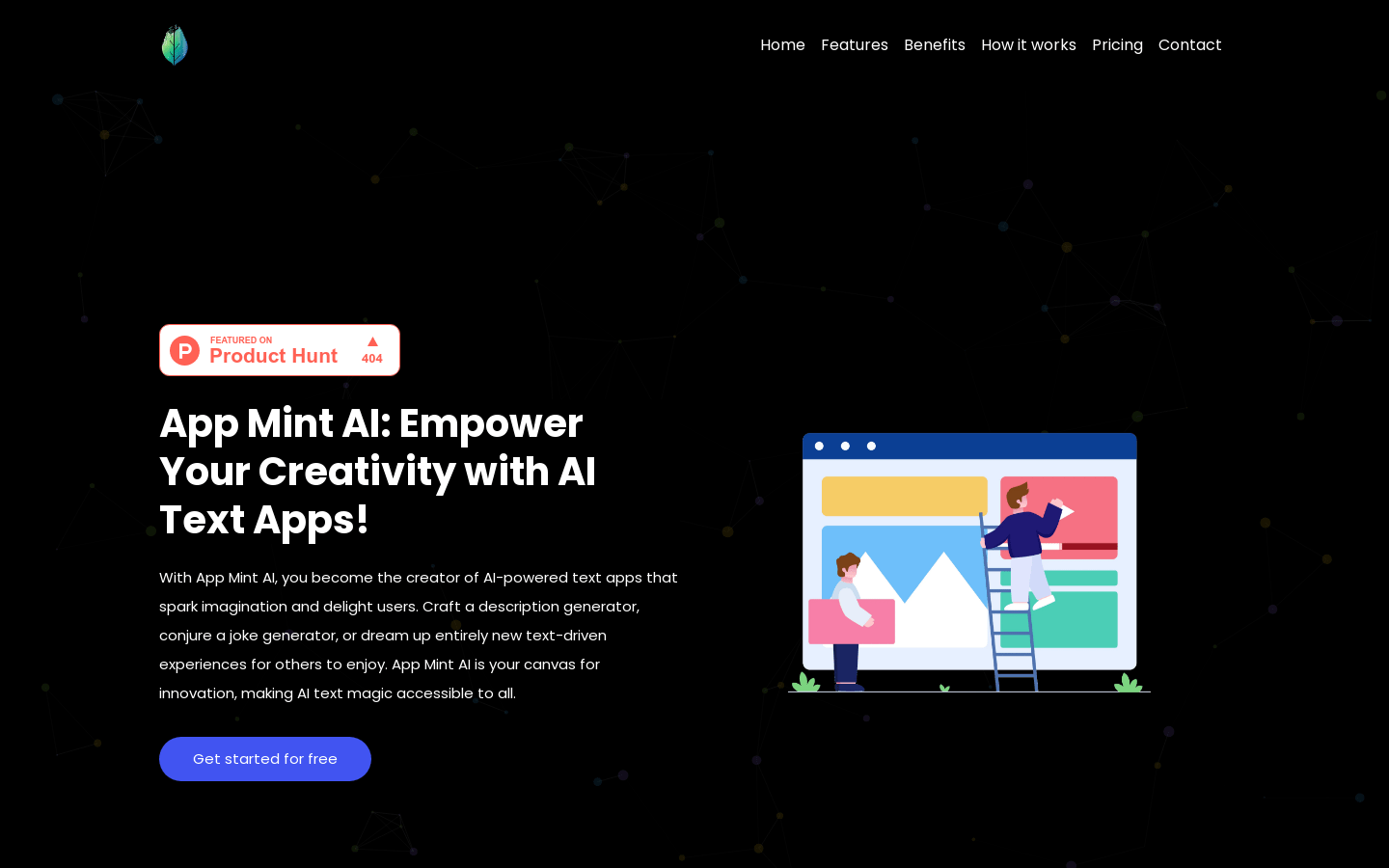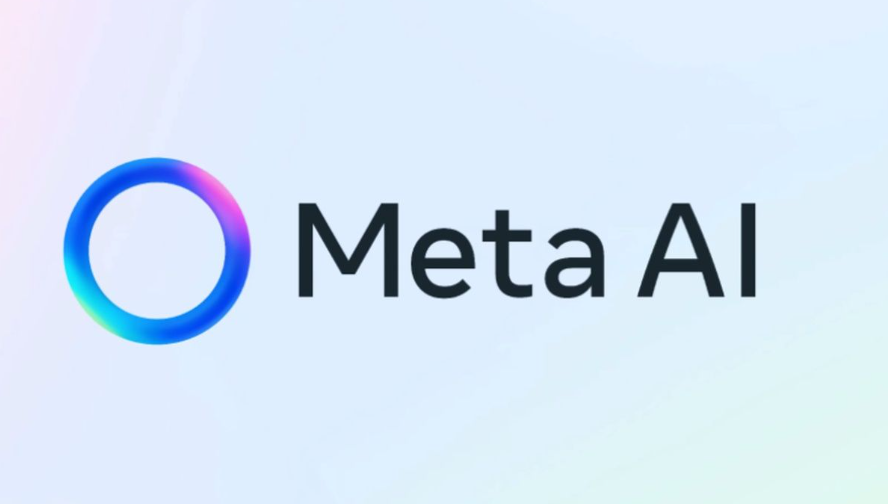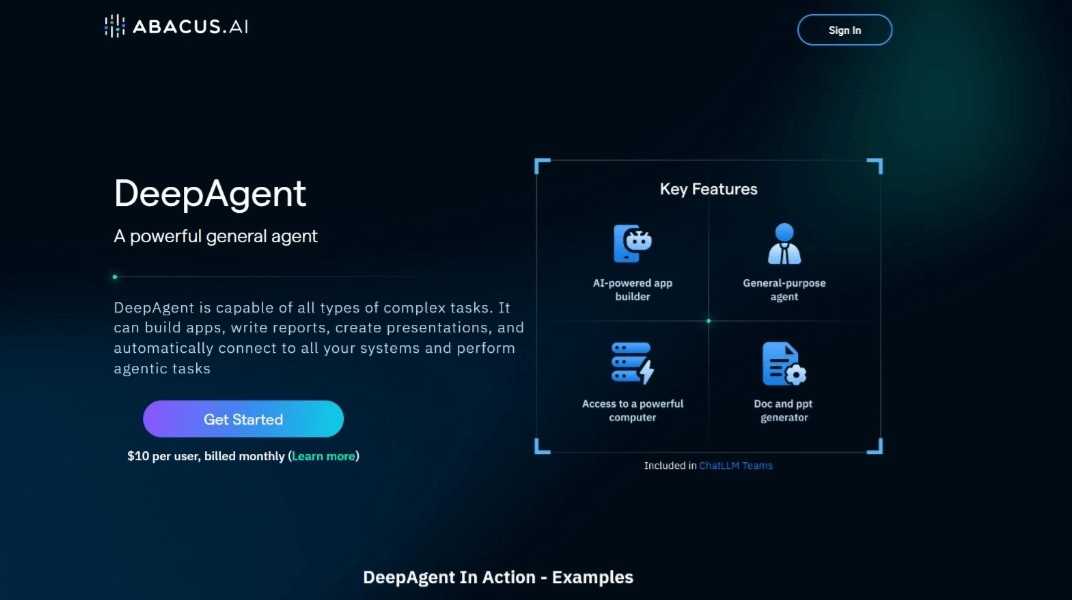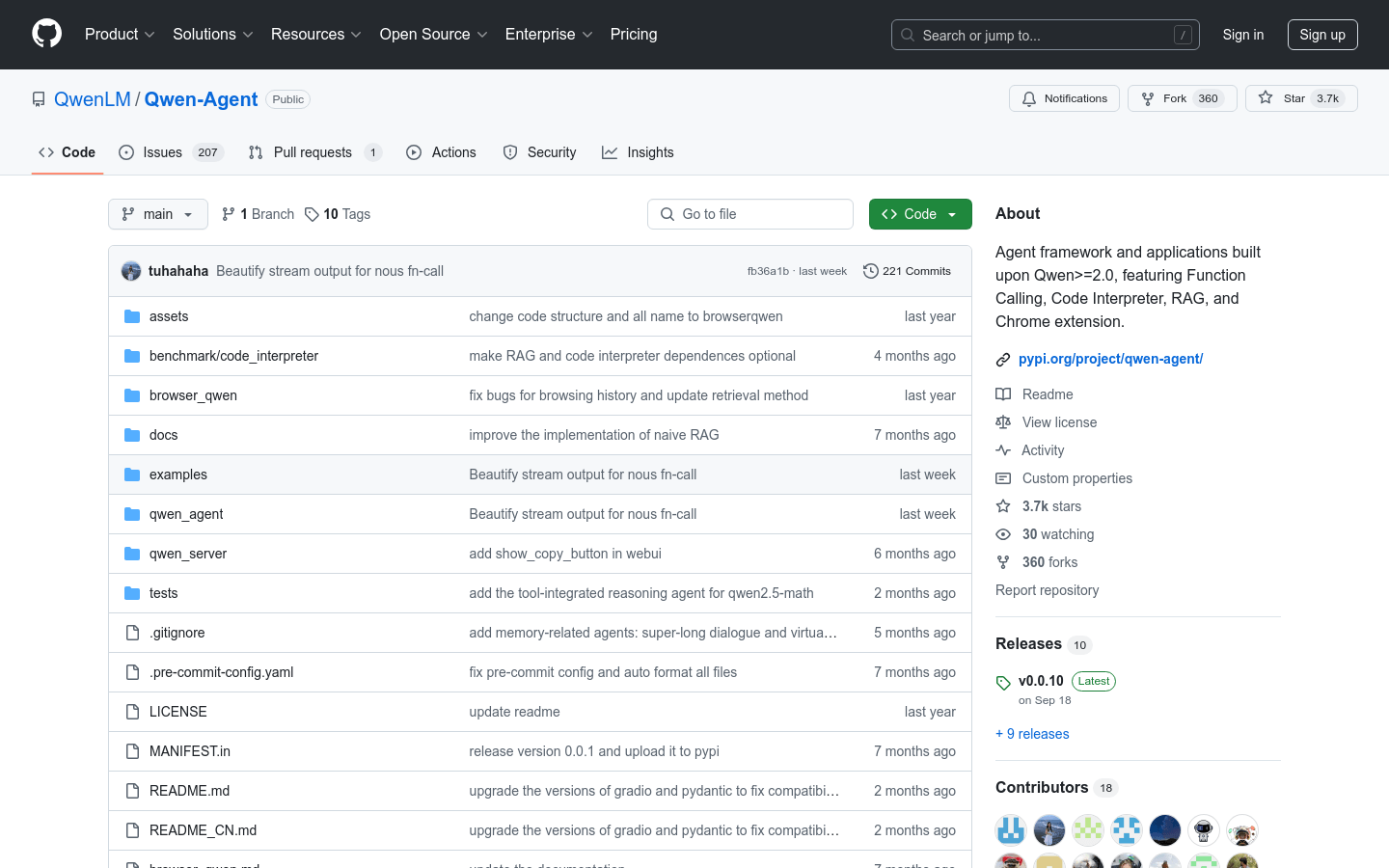
Qwen-Agent is an Agent framework built on Qwen>=2.0. It has the ability to follow instructions, use tools, plan and remember. The framework provides sample applications such as browser assistants, code interpreters, and custom assistants. The main advantages of Qwen-Agent include its high scalability and modular design, allowing developers to integrate different tools and functions as needed. Product background information shows that Qwen-Agent aims to provide developers with a powerful toolset to build and deploy applications based on large language models. Qwen-Agent is open source on GitHub, allowing community contributions and collaboration.
Demand group:
"The target audience is developers and technicians, especially those individuals or teams who need to build applications based on large-scale language models. Qwen-Agent provides a complete set of tools and frameworks that allow developers to quickly build and deploy intelligent assistants , code interpreter and other applications, while maintaining a high degree of flexibility and customizability."
Example of usage scenario:
• Browser Assistant: BrowserQwen, built using Qwen-Agent , provides intelligent Q&A and processing of web content.
• Code Interpreter: A code interpreter integrated into Qwen-Agent that allows executing and testing code snippets.
• Custom Assistant: A custom assistant developed based on Qwen-Agent that can perform specific tasks according to user needs.
Product features:
• Function calling: The LLM class provides function calling capabilities, and the Agent class is built based on this capability.
• Code Interpreter: Supports code execution, including Tool-Integrated Reasoning.
• RAG support: Provides quick documentation Q&A solutions.
• Chrome extension: allows the use of Qwen-Agent 's functionality in a browser environment.
• Multi-language support: Provides Chinese and English documents to facilitate users of different languages.
• Advanced components: Provides atomic components such as LLMs and Tools, and advanced components such as Agents.
• Customizability: Users can customize the Agent according to their needs to adapt to different application scenarios.
Usage tutorial:
1. Install Qwen-Agent : Install via pip or install from source code.
2. Prepare model service: Use the model service provided by DashScope or deploy the Qwen model service yourself.
3. Develop your own Agent: Inherit the Agent class and integrate different tools and functions as needed.
4. Run Agent: Run as a chatbot, handle user requests and provide responses.
5. Integrated tools: Use the Tool class provided by Qwen-Agent to integrate custom tools to extend functions.
6. Deploy applications: Deploy the developed Agent into actual applications, such as browser plug-ins or independent applications.
